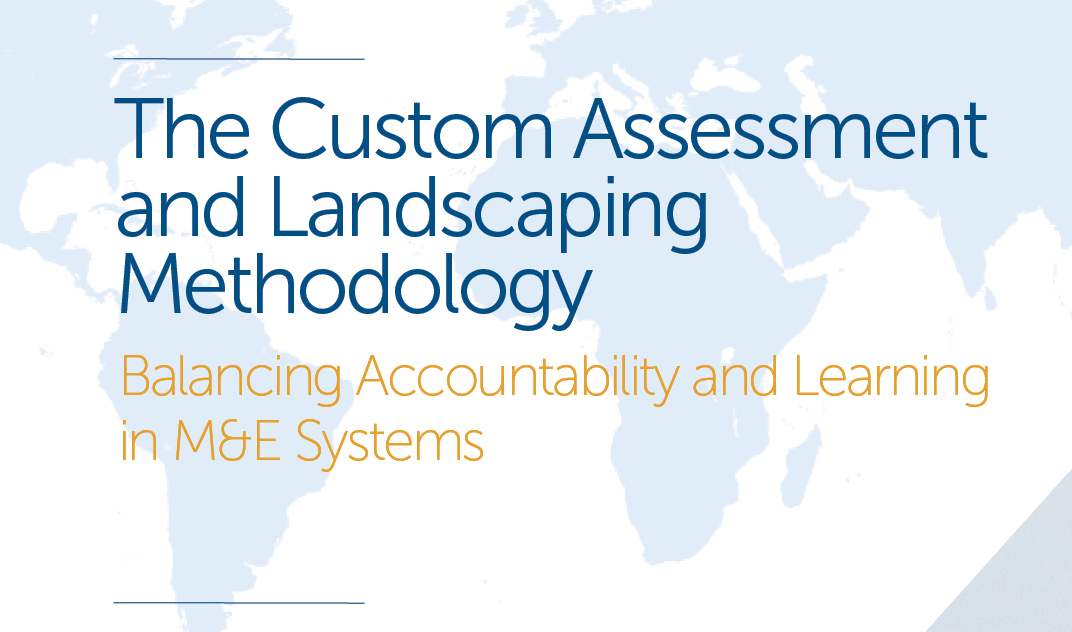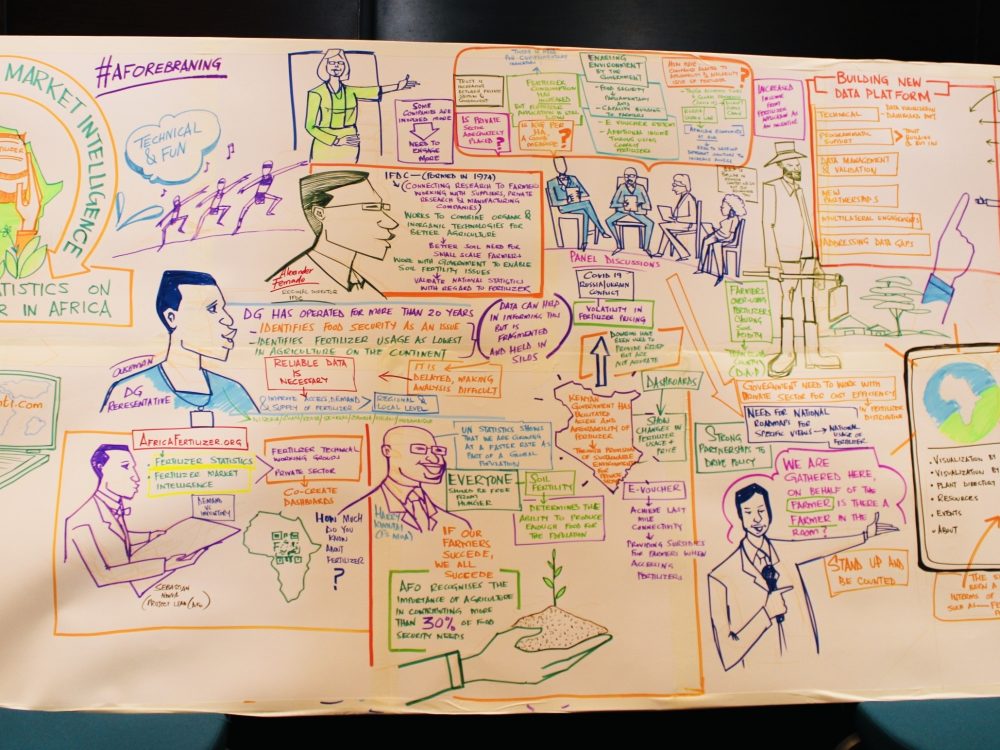DG White Paper Release: The Custom Assessment and Landscaping Methodology

To achieve data use, we must change how we approach, design, and implement M&E systems. At present, investments in M&E systems suffer from high levels of inefficiency, and there is a high rate of failure across implemented systems.
In taking steps to improve how M&E systems are designed, and to achieve truly useful systems, Development Gateway is pleased to announce the release of our latest white paper, “The Custom Assessment and Landscaping Methodology: Balancing Accountability & Learning in M&E Systems.” We launched the white paper at our recent learning event, “Strengthening Foreign Assistance Through Results Data Use.” In it, we share our Custom Assessment and Landscaping Methodology (CALM) as a streamlined approach to developing tools and processes that maximize impact of data for decision-making. The CALM approach highlights finding the proper balance between accountability- and learning-focused systems.
We also share two case studies, from our work with the United Kingdom’s Department for International Development (DFID) and the Government of Malawi’s Ministry of Agriculture, Irrigation, and Water Development (MoAIWD), on how we have implemented CALM to support design of more balanced M&E systems.

This white paper is the second we have released this year – coming on the heels of our first report, Understanding Data Use: Building M&E Systems that Empower Users, which shares our thinking around smarter M&E investments to drive data use, gained from Results Data Initiative implementation.
We look forward to continuing the conversation on the importance of balancing learning and accountability mechanisms in system design, in partnership with considering decision space in achieving data uptake.
Happy reading, and let us know what you think on Twitter at @DGateway!
The Custom Assessment and Landscaping Methodology: Balancing Accountability & Learning in M&E Systems was written by Paige Kirby and Vinisha Bhatia-Murdach, both of Development Gateway.
Share This Post
Related from our library

Building a Sustainable Cashew Sector in West Africa Through Data and Collaboration
Cashew-IN project came to an end in August 2024 after four years of working with government agencies, producers, traders, processors, and development partners in the five implementing countries to co-create an online tool aimed to inform, support, promote, and strengthen Africa’s cashew industry. This blog outlines some of the key project highlights, including some of the challenges we faced, lessons learned, success stories, and identified opportunities for a more competitive cashew sector in West Africa.

Digital Transformation for Public Value: Development Gateway’s Insights from Agriculture & Open Contracting
In today’s fast-evolving world, governments and public organizations are under more pressure than ever before to deliver efficient, transparent services that align with public expectations. In this blog, we delve into the key concepts behind digital transformation and how it can enhance public value by promoting transparency, informing policy, and supporting evidence-based decision-making.

From Data Gaps to Impact: Key Insights from the VIFAA Program
Over the last six years, DG, together with its partners AfricaFertilizer (AFO) and Wallace & Associates, collaborated to implement the Visualizing Insights on Fertilizer for African Agriculture (VIFAA) Program. In the program’s final year (2024), the team undertook a “program learning process” to reflect on outcomes, challenges, and successes through internal interviews. This blog captures five key learnings, which we hope will guide similar programs aiming to bridge data gaps in agricultural development.